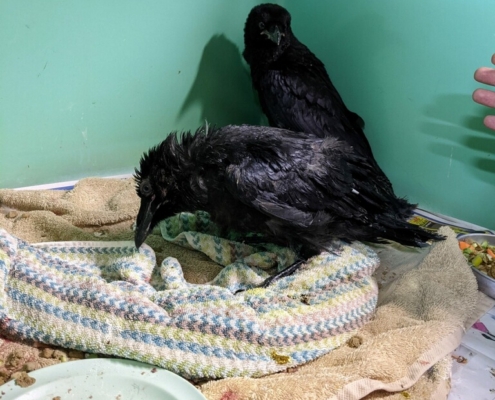September 23, 2021
We are sad to report that our wildlife hospital is seeing an increase in cases of West Nile Virus, which is transmitted by mosquitoes. Mosquitoes can fly up to two miles as adults, but they start as small larvae which live in standing water. Adult mosquitos can transmit West Nile Virus to not only birds, but also to humans, horses, and other animals. While most healthy humans can easily fight off this virus, birds and other animals are not so lucky. Unfortunately we have had several bird patients die this year because of it, including birds who have been in our care for several months, meaning it was contracted from local mosquitoes.
The most commonly affected species we are seeing in our Wildlife Hospital are crows, ravens, and some hawk species. If you find a bird that is showing neurological symptoms (off-balance, unable to use legs or wings, head tilted) or that is weak and lethargic, contact us at (505) 753-9505.
We are doing our part to prevent the increase in mosquito population by turning over all empty containers, and changing out water in our animal enclosures every day – the best way to avoid more mosquitoes which might carry this deadly disease. We wanted to share this information with you so that you too can help keep your community healthy and as mosquito-free as possible.
Ways you can help prevent the spread of West Nile Virus:
- Empty all containers of standing water
- Overturn anything that might collect water
- Protect yourself and your animals by using proper clothing or protective repellant
- If you have standing water such as troughs for horses or livestock, consider using mosquito dunks to prevent mosquitoes from breeding
To learn more about West Nile Virus in New Mexico, visit bit.ly/3CB4jZw.







